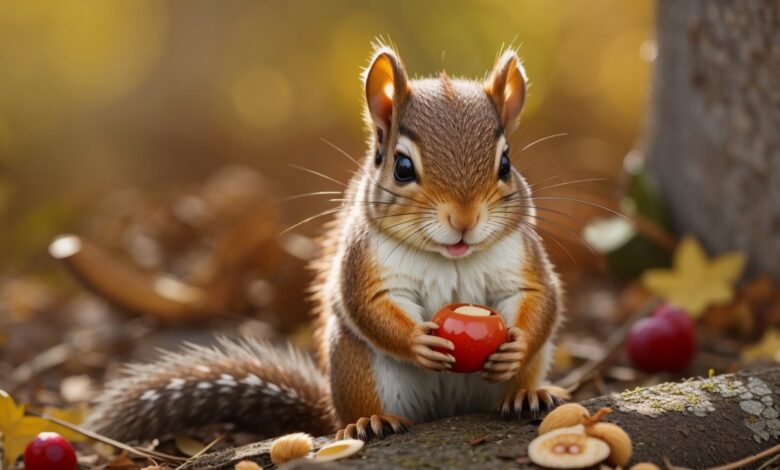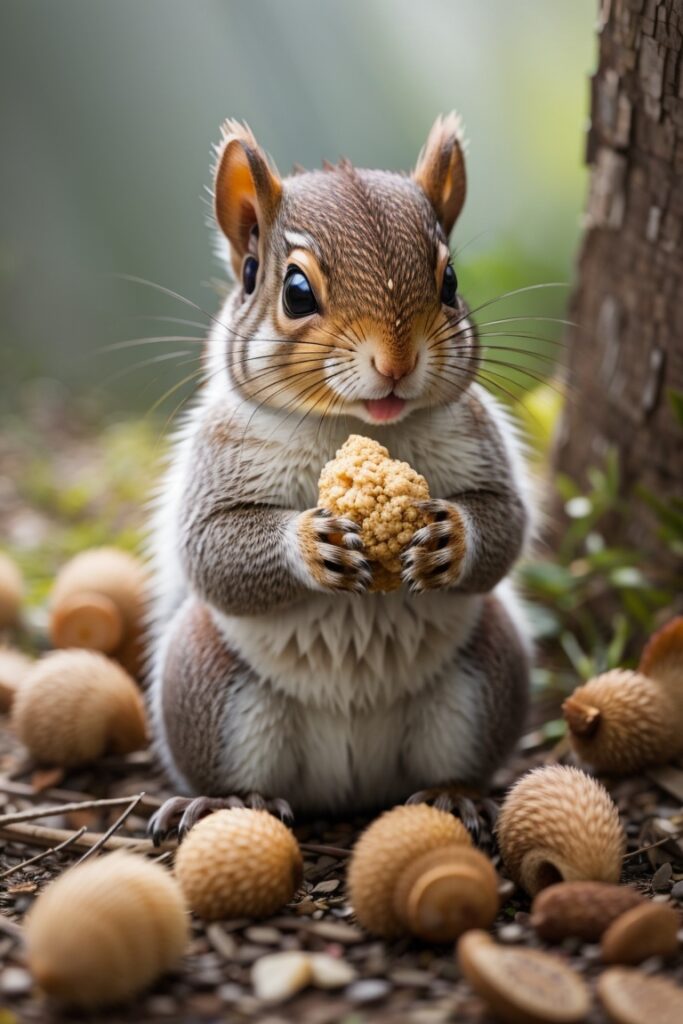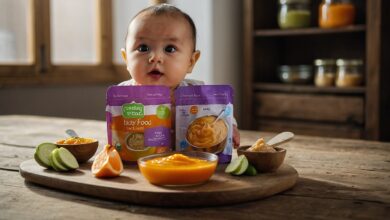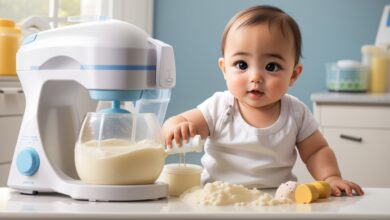A Nutritional Guide: What to Feed a Baby Squirrel
Nurturing Nutrients: A Comprehensive Baby Squirrel Nutrition Guide

Introduction what to feed a Baby squirrel
When it comes to caring for baby squirrels, it’s essential to understand their specific nutritional needs. Proper feeding plays a crucial role in their overall development and well-being. In this guide, we will explore the appropriate age for introducing solid foods, the importance of proper nutrition, and how to ensure your baby squirrel receives the necessary nutrients for healthy growth. what to feed a baby squirrel?
Milk Replacements for Baby Squirrels
Choosing the right milk replacement formula for baby squirrels is of utmost importance. Here are several important factors to bear in mind:
Essential components of a suitable milk replacement
Milk replacements should contain the essential nutrients necessary for a growing squirrel. Look for formulas that provide a balance of proteins, fats, and carbohydrates. Additionally, the presence of vitamins and minerals is crucial for their overall development.
Reading labels and avoiding harmful ingredients
When selecting a milk replacement formula, it’s essential to read the labels carefully. Avoid formulas that contain artificial additives, preservatives, or excessive sugars. These ingredients can be harmful to the health of your baby squirrel.
Recommended brands and where to find them
There are specific brands that specialize in milk replacement formulas for baby squirrels. Included in this list are (Brand 1), (Brand 2), and (Brand 3). You can find these formulas at local pet stores or reputable online retailers.
When it comes to preparing and storing the milk replacement formula, follow these guidelines:
Mixing instructions for optimal nutrition
Different brands may have specific mixing instructions, so it’s crucial to follow them precisely. Generally, you will need to combine the formula with water in the correct ratio. Mix the formula thoroughly to ensure all nutrients are adequately distributed.
Proper storage techniques to prevent spoilage
To prevent spoilage, always store the prepared formula in a clean and airtight container. Keep it refrigerated when not in use. It’s essential to discard any unused formula after 24 hours, as it can spoil and become unsafe for consumption.
Importance of regular formula temperature checks
Before feeding the baby squirrel, it’s crucial to check the temperature of the formula. It should be warm, similar to the mother squirrel’s milk. Use a thermometer to ensure the formula is not too hot, as it can burn their delicate mouths.
Introduction of Solid Foods to Baby Squirrels
As baby squirrels mature, it becomes necessary to introduce solid foods. Here’s what you need to know:
Indicators of readiness for solid food consumption
Baby squirrels generally start showing interest in solid foods when they are around ___ weeks old. Signs of readiness may include increased curiosity about their surroundings, attempting to gnaw on objects, and the ability to sit upright independently.
Gradual transition from milk replacement to solids
When introducing solid foods, it’s essential to do so gradually to allow the squirrel’s digestive system to adjust. Start by offering small portions of soft food alongside their regular milk replacement. Over time, increase the amount of solid food while decreasing the milk replacement.
 Monitoring squirrel’s response to new foods
Monitoring squirrel’s response to new foods
Observe the baby squirrel’s response to new foods. If they show signs of discomfort or digestive issues, such as diarrhea or vomiting, discontinue that particular food item. Every squirrel is unique, so it’s crucial to tailor their diet according to their individual needs.
Healthy and safe solid food options
When it comes to solid food options, baby squirrels can enjoy a range of nuts and seeds, such as almonds, walnuts, and sunflower seeds. Additionally, fruits and vegetables like apples, bananas, carrots, and broccoli can provide essential vitamins and minerals.
Avoiding toxic foods to safeguard squirrel health
It’s crucial to avoid feeding baby squirrels any toxic foods. Some examples of toxic foods for squirrels include chocolate, caffeine, onions, garlic, and grapes. These can present significant health risks and should be strictly avoided.
Proper preparation and feeding techniques
To make solid foods easier for baby squirrels to consume, crush or grind them into small, manageable pieces. This will ensure they can chew and digest the food effectively. Gradually introduce different textures to help develop their self-feeding skills.
Establishing a feeding schedule for routine and consistency
Establishing a feeding schedule for your baby squirrel will promote routine and consistency. Offer solid foods alongside milk replacements at designated times throughout the day. This will help them develop healthy eating habits and adjust to a varied diet.
Additional Nutritional Considerations for Baby Squirrels
In addition to milk replacements and solid foods, there are other nutritional considerations to keep in mind:
Supplementing with essential vitamins and minerals
While milk replacements and solid foods provide many nutrients, it may be necessary to supplement with additional vitamins and minerals. Consult with a veterinarian to identify any potential nutrient deficiencies and determine the appropriate supplements to introduce.
Ensuring proper hydration
Proper hydration is vital for the overall health of baby squirrels. Provide fresh, clean water at all times. However, if your squirrel is reluctant to drink water, you can offer alternative hydration options such as diluted fruit juices or electrolyte solutions. Avoid sugary and caffeinated drinks as they can be harmful to their health.
Understanding the need for a balanced diet
A balanced diet is essential for the optimal development of what to feed a baby squirrel. Incorporate proteins, carbohydrates, and fats in their diet to ensure they receive a well-rounded nutritional intake. Additionally, include dietary fiber to promote healthy digestion. As the squirrel matures, be prepared to adjust their diet accordingly to meet their changing nutritional needs.
Summary of what to feed a baby squirrel
Feeding a baby squirrel requires careful consideration of their specific nutritional needs. Providing suitable milk replacements, introducing solid foods at the right stage, and ensuring additional nutritional considerations are met are crucial for their overall development and well-being. By following these guidelines, you can confidently provide a balanced and varied diet for your baby squirrel.
FAQs
Here are some frequently asked questions about what to feed a baby squirrel:
Can baby squirrels be given cow’s milk as a substitute?
While cow’s milk may seem like a viable substitute, it is not recommended for baby squirrels. Cow’s milk lacks the necessary nutrients for their growth and can cause digestive issues. Stick to specialized milk replacement formulas specifically designed for squirrels.
Is it necessary to provide any supplements other than milk replacements?
While milk replacements and solid foods should provide most of the necessary nutrients, some baby squirrels may require additional vitamin and mineral supplements. Consult with a veterinarian to determine if your squirrel needs any additional supplementation.
How can I prevent overfeeding my baby squirrel?
Overfeeding can lead to various health issues, so it’s crucial to avoid it. It’s best to follow a feeding schedule and provide appropriate portion sizes for each feeding. Monitor the squirrel’s weight and consult with a veterinarian to ensure they are growing at a healthy rate.
Can I feed my baby squirrel meat or poultry?
It is not recommended to feed baby squirrels meat or poultry. Their diets should primarily consist of milk replacements, nuts, seeds, fruits, and vegetables. Meat and poultry can be challenging for them to digest and may cause digestive issues.
What should I do if my baby squirrel refuses to eat solid foods?
If your baby squirrel is resistant to eating solid foods, it’s important not to force them. Continue offering small amounts of solid food alongside milk replacements and monitor their response. If the problem continues, seek advice from a veterinarian for further guidance.


 Monitoring squirrel’s response to new foods
Monitoring squirrel’s response to new foods


